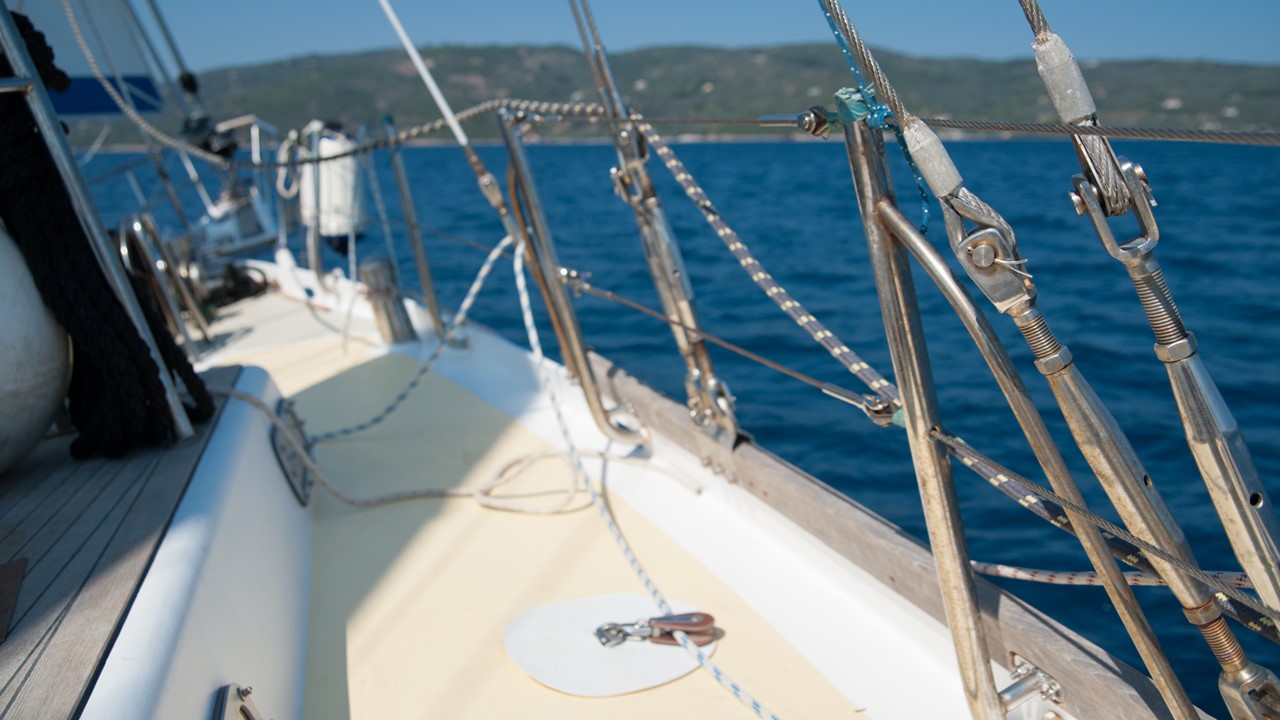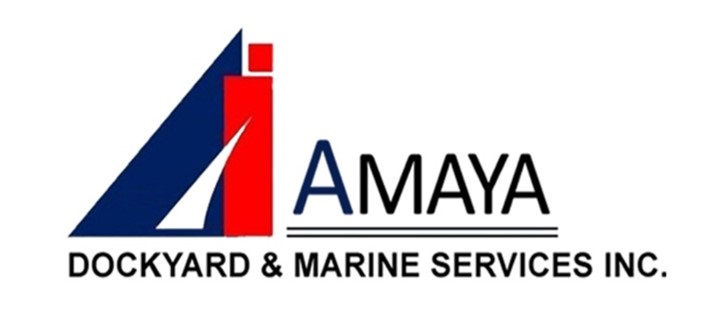Fiberglass Reinforced Plastic (FRP) Construction

Fiberglass Reinforced Plastic (FRP) Construction
Fiberglass reinforced plastic (FRP) construction is one of the ship repair services in the Philippines offered by Amaya Dockyard & Marine Services Inc. FRP construction involves the use of composite materials made from a combination of fiberglass and plastic resin. This type of construction is known for its durability, lightweight, and resistance to corrosion, making it an ideal choice for ship repairs.
With our FRP construction service, we can repair or replace damaged sections of a ship’s hull or other structural components. Our team of skilled technicians has extensive experience in working with FRP materials, ensuring high-quality repairs that meet industry standards.
Whether it is repairing cracks or holes in the hull due to impact or wear and tear, our FRP construction service provides reliable solutions. We also offer custom fabrication services using FRP materials, allowing us to create new structures or modifications according to specific requirements.
Overall, Amaya Dockyard & Marine Services Inc.‘s ship repair service includes professional and efficient fiberglass-reinforced plastic (FRP) construction options that guarantee long-lasting repairs and improvements for your vessel.
Why is Fiberglass Reinforced Plastic (FRP) Construction Needed During Ship Repair?
Fiberglass Reinforced Plastic (FRP) construction is essential during ship repair due to its numerous advantages and applications. Firstly, FRP materials are highly durable and resistant to corrosion, making them ideal for repairing ships that have been exposed to harsh marine environments. The use of FRP can help extend the lifespan of a ship by providing a protective layer against rust and deterioration.
Secondly, FRP construction offers excellent strength-to-weight ratio properties, allowing for the repair of damaged sections without adding unnecessary weight to the ship. This is particularly crucial in maintaining the overall balance and stability of the vessel. Additionally, FRP materials can be easily molded into various shapes and sizes, enabling precise repairs on complex structures such as hulls or decks.
Furthermore, FRP construction also provides insulation properties that are beneficial during ship repairs. These materials possess excellent thermal insulation capabilities that can help regulate the temperature within different compartments of a vessel. This is vital in preventing heat transfer or condensation issues that could potentially damage sensitive equipment or affect crew comfort.
Overall, the versatility, durability, lightweight nature, and insulation properties of Fiberglass Reinforced Plastic make it an indispensable material in ship repair services provided by companies like Amaya Dockyard & Marine Services Inc. Its ability to withstand harsh marine conditions while offering structural integrity makes it an ideal choice for maintaining and restoring ships effectively.
Advantages of FRP in Ship Repair and Construction: Increased Durability and Corrosion Resistance
One of the major advantages of using FRP (Fiber Reinforced Plastic) in ship repair and construction in Luzon, Visayas, and Mindanao is its increased durability. FRP materials are known for their high strength-to-weight ratio, which allows them to withstand heavy loads and impacts without sacrificing structural integrity. This makes FRP an excellent choice for ship construction, as it can provide enhanced resistance to potential damages caused by rough seas, collisions, or other external forces.
Additionally, FRP offers superior corrosion resistance compared to traditional shipbuilding materials such as steel. Unlike metals that are prone to rusting and corroding when exposed to salt water or harsh environments, FRP is highly resistant to corrosion. This not only increases the lifespan of the ship but also reduces maintenance costs associated with repairing or replacing corroded parts. By utilizing FRP in ship construction, vessels can remain structurally sound and functional even in corrosive marine environments for extended periods.
The advantages of using FRP in ship repair and construction in the Philippines extend beyond increased durability. The material’s high strength-to-weight ratio ensures that ships can withstand heavy loads and impacts while maintaining structural integrity. Furthermore, its exceptional corrosion resistance significantly prolongs the lifespan of vessels and reduces maintenance costs associated with corrosion-related damages. With these benefits in mind, it is clear why many shipbuilders choose to incorporate FRP into their construction processes.
Advantages of FRP in Ship Repair and Construction: Lightweight and Fuel Efficiency
One of the major advantages of using FRP (Fiber Reinforced Plastic) in ship repair and construction in Metro Manila is its lightweight nature. Compared to traditional materials like steel, FRP offers a significantly lower density while maintaining high strength and durability. This reduced weight contributes to improved overall vessel performance, including increased speed and maneuverability. Additionally, the lighter weight reduces fuel consumption and operating costs, making FRP an attractive option for shipbuilders looking to enhance fuel efficiency.
Another advantage of using FRP in ship construction is its potential for increased fuel efficiency. The lightweight nature of FRP results in a reduced drag on the vessel, allowing it to move through water with less resistance. This decreased drag translates into lower energy requirements for propulsion systems, leading to reduced fuel consumption during voyages. As environmental concerns grow and regulations become stricter regarding emissions from maritime activities, choosing materials like FRP that contribute to improved fuel efficiency can help shipping companies meet sustainability goals while also saving costs on fuel expenditure.
Advantages of FRP in Ship Repair and Construction: Design Flexibility and Versatility
One of the major advantages of using FRP (Fiber Reinforced Polymer) in ship repair and construction in Cavite is its design flexibility. Unlike traditional materials like steel or aluminum, FRP can be molded into various shapes and forms, allowing for greater creativity in ship designs. This flexibility enables shipbuilders to create custom solutions that meet specific requirements, such as integrating complex geometries or accommodating unique equipment installations. Furthermore, FRP can be easily modified during the construction process without compromising its structural integrity, providing designers with more freedom to make adjustments and improvements.
Another noteworthy advantage of using FRP in ship repair and construction in the Philippines is its versatility. FRP materials have excellent corrosion resistance properties, making them highly suitable for marine applications where ships are constantly exposed to harsh environments like saltwater and extreme weather conditions. Additionally, FRP composites offer a high strength-to-weight ratio compared to other traditional materials used in shipbuilding. This lightweight characteristic not only reduces fuel consumption but also increases speed and maneuverability while maintaining structural integrity. Moreover, the non-magnetic nature of FRP makes it ideal for naval vessels that require reduced electromagnetic signatures.
The use of FRP in ship construction brings several advantages, including design flexibility and versatility. These benefits enable shipbuilders to create innovative designs while ensuring durability and performance even in challenging maritime environments.
Advantages of FRP in Repair and Ship Construction: Cost-effectiveness and Longevity
One of the major advantages of using Fiber Reinforced Plastics (FRP) in ship construction is its cost-effectiveness. FRP materials are generally cheaper compared to traditional materials such as steel or aluminum. This can significantly reduce the overall cost of ship construction and repair. Additionally, FRP requires minimal maintenance and has a longer lifespan than conventional materials, saving on maintenance costs in the long run.
Another advantage of using FRP in ship construction is its exceptional longevity. FRP boats and ships have been known to last for decades due to their high resistance against corrosion, rotting, and degradation caused by water exposure. Unlike steel or aluminum, which may require frequent painting or coating to prevent corrosion, FRP does not rust or deteriorate easily under harsh marine conditions. This increased durability ensures that ships built with FRP can withstand the test of time without compromising their structural integrity or performance.
These cost-effectiveness and longevity advantages make FRP an attractive option for ship repair and construction, offering both financial benefits and enhanced vessel durability.
Contact us today and find out:
- Email us: info@amayadockyard.com
- Call our 24-hour hotline: +63 917 633 0479
- Viber: +63 917 633 0479
- WhatsApp: +63 917 633 0479
- Facebook Messenger: Click here
- Click here to inquire
Check Out Our Ship Building
Amaya Dockyard & Marine Services Inc. (ADMSI) is revolutionizing the maritime industry in the Philippines with its commitment to building cost-effective and on-time delivery of various vessels, including LCTs, deck barges, pontoons, RoRo, and more. With a reputation for excellence and reliability, ADMSI has become a trusted name in the industry.
